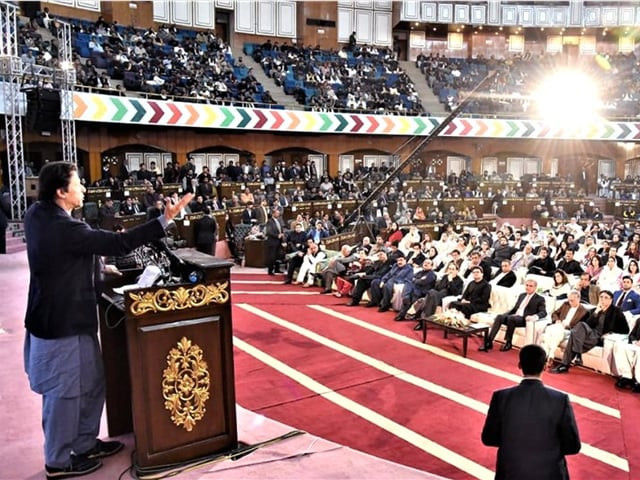On November 29th, the leader of the nation walked up to the stage to a standing applause in an elaborate ceremony celebrating the achievements of Prime Minister Imran Khan’s first 100 days in government, and to set the agenda for the hundreds of days ahead. The speech lasted for the better part of an hour, with its more nuanced prescripts perhaps being dominated by the ‘chicken plan’ in the media cycle.
The suggestion that the provision of five chickens each to rural women as a means of sustenance and economic alleviation does seem somewhat ridiculous, but had the authority of one Mr Bill Gates behind it, who proposed the idea for impoverished communities in Africa.
Stepping aside from the media frenzy over the comment, it also seems to make scant economic sense. As senior researchers at the London School of Economics (LSE) outlined, the ‘chicken plan’ ignores the impossibility of setting up retail structures for the sale of poultry at the micro level, which is dominated by nationwide meat conglomerates and multinational corporations. The solution they proposed – an involvement of the international public sector and state-led development in rural areas to create cooperatives – is also symptomatic of the salient issue facing the Pakistan Tehreek-e-Insaf (PTI) government today. The government is honest about the problems it faces, but seems to lack the expertise to create long-term structural solutions to the problems it outlines.
The opposition’s response to the prime minister’s speech is endemic of the political polarisation that has torn apart Pakistan. Nuance is lost for caricature, and criticism of an idea is conveniently replaced by demonising the person delivering it. Most notably, the opposition fails to realise that they take glee in pointing out the numerous problems plaguing the country because the PTI has been so open about identifying them.
The government’s progress tracker towards the goals laid down in the 100-day agenda is testament to its transparency, and should be replicated by the governments to come. However, as laudable as openness is, it does little towards resolving the problems it takes note of. Imran must push the government away from the electorally effective self-congratulatory notions of transparency and accountability, and towards good governance. Winning is easy. Governing is harder.
While tense negotiations with the International Monetary Fund (IMF) continue, the Pakistani government has to work towards attracting foreign investment and development funding past asking the Pakistani diaspora for aid and relief. The PTI government needs to reconcile that the solution for Pakistan’s problems cannot solely come from Pakistan.
A strengthening of intellectual property rights, consistency in monetary policy, and a guarantee of contractual protections will go much further to rejuvenate Pakistan’s economy than shouting at Pakistanis living internationally from a domestic pulpit. Similarly, working with United States Agency for International Development (USAID) and the World Bank to increase micro-finance opportunities and development initiatives helps those most in need much more than a critique of all western institutions as exploitative. No matter how justifiable the critique, words do not feed the poor.
In the domestic setup, the government has to move away from the narrative against ‘metro bus’ politics and recognise that top-down infrastructure development can provide immediate income alleviation to the working class and help rejuvenate villages and smaller cities that were left out of the Pakistan Muslim League-Nawaz (PML-N) development frenzy. The problem with the approach wasn’t the nature of development, but its centralisation in elite cities.
Just like the opposition has to, Imran must run the electoral risk of ‘doing the same’ if some of the same works. The idea of a Naya Pakistan must be partially built on purani (old) policies that were effective, if its foundations are to be successful.
In the preface to the Progress Report on the 100-day agenda, the prime minister said,
“As we execute our plans for Pakistan over the coming years, there is also something I must ask of you, as citizens of this country – we cannot, and must not, walk alone, as individuals.”
The prime minister must first and foremost espouse this principle himself and find solutions across the political aisle. Amplifying our problems and simplifying our solutions is a staple of Pakistani politics. Imran, if he has to leave a lasting legacy, must break this cycle and work towards more long-term, albeit more unpopular solutions.



COMMENTS
Comments are moderated and generally will be posted if they are on-topic and not abusive.
For more information, please see our Comments FAQ